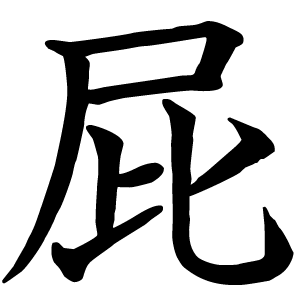
According to lots of people far smarter than me, Japanese is either one of the hardest, or the hardest language for English speakers to learn. But why? It’s very different from English, obviously, but so are lots of other languages. And Japanese grammar isn’t all that complicated, nor is the speaking and listening as difficult as tonal languages like Mandarin. So, to ask the same rhetorical question twice in one paragraph: why is Japanese so difficult to learn?

If you’ve ever studied Japanese, or know a little about Japanese as a language, or have literally just read the title of this post, you’ll know the answer – kanji. Originally taken from China, kanji is now radically different from the Chinese writing system, and far more difficult to learn.
Now, I wrote last week about how intimidating learning kanji can be, and why it’s far more doable than people make it out to be. So I won’t go over all that again. You can read my post What I want to talk about this week, is why you should bother learning kanji in the first place. So here are 13 good reasons you should learn kanji:

(Note: some of these only make sense if you live in Japan.)
- Japanese people think you’re basically magic.
- It’s really useful for learning vocabulary – especially since it often acts as a ready-made mnemonic.
- It allows you to read, obviously. That really should have been number 1.
- It makes walking down the street much more interesting – instead of just a boring, nondescript building, it’s now a boring, nondescript proctology clinic (70% of all buildings in Japan house medical clinics, for some reason – roughly 90% of which are ear, nose, and throat clinics, with the remaining 10% being proctology clinics. Roughly 50% of all adverts on trains are for local proctology clinics. I’m only kind of joking about this.)
- Learning a couple hundred kanji basically teaches you how to predict stroke order of unfamiliar kanji, allowing you to look up unfamiliar things (place names, stations, warnings about perverts on trains, the ticket you received from the police doing pervert stuff on the train) and get around life in Japan much more easily (you can set up your smartphone to allow you to hand-draw kanji using the touch screen.
- It cuts down anxiety on unfamiliar train rides (esp. in the countryside on small lines), allowing you to know where you are/the next stop without having to wait and hope that it will be displayed in English
- Following on from number 4, it lets you be the high-level weeb you’ve always wanted to be. Right now I’m playing Yo-kai Watch 4 (a mature game for grown-up people), which hasn’t seen an English release yet, and I’m reading the incredibly good manga Our Dreams at Dusk (Shimanami Tasogare) – a 4-part series, only the first of which has been released in the west as of the time of writing. Learning Japanese opens you up to a whole world of good media aimed squarely at poindexters like you and me.
- It allows you to go into all the haughty, semi-fancy Japanese restaurants that put their menus all in kanji (even the things that Japanese people write in kana 100% of the time) to keep foreigners out, so you can annoy them with your presence while feeling self-conscious and not at all having a good time.
- It’s interesting and fun. Fight me.
- You can understand and fill in complicated forms perfectly, for all those complicated government things you need to do but don’t actually understand, and wouldn’t understand even if everything was written in English.
- It removes 40-50% of the friction in everyday life in Japan
- If you get married to a Japanese person, it allows you to live a life together without having to say to them “Please do my adult things for me because I am baby” every week for the rest of your life, which, I don’t know, might just lead to a tiny bit of resentment maybe?
- The following horse fact:
The kanji for horse is:

There is also an obscure kanji that means ‘many horses’ and which looks like this:
Personally I think that one kanji is reason enough, but the other 12 points are also good, I guess.
—
So that’s it – indisputable proof that learning kanji is worthwhile. Thanks for reading!
If you liked this post you can follow me on Twitter by clicking here. or you could be the loveliest person alive and support me on my newly-opened Patreon. Chuck a few dollars my way, get some lovely rewards, and generally feel good about yourself for supporting the arts. Does this count as the arts? I guess so?

Just dropping in to say I completely agree — I’ve wanted to be that high-level weeb for a while now, and I learned the kana years ago, but kanji always seemed like too steep a mountain to climb. But now that I’m actually doing it, it doesn’t seem that hard, at least when I compare it with learning languages that are more similar to my own. I think the fact that Japanese uses such a different writing system and is generally so different otherwise from English lets my brain easily separate the two, making the process easier. And the kanji don’t seem so bad once you learn how the radicals are used to create them.